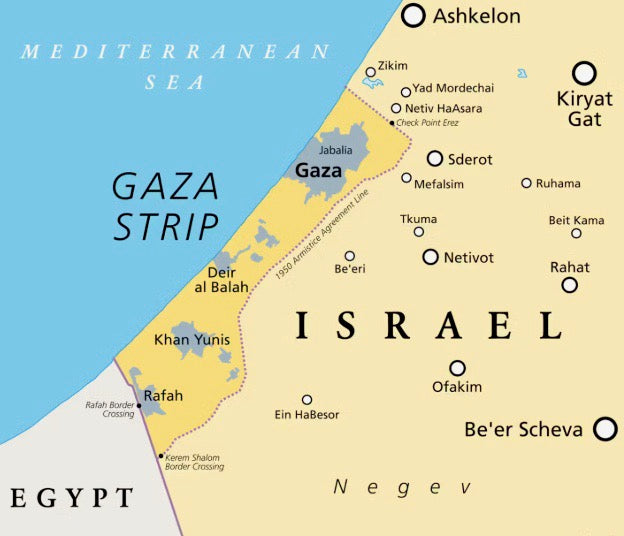
Gaza: Getting Acquainted
Share
Gaza: Getting Acquainted
By examining Gaza's past and present, we can better understand the complexities of this area and explore potential solutions for its future. This discussion is intended to be informative and fact-based, highlighting key historical events and modern-day challenges. Ultimately, the goal is to encourage fresh perspectives on how to address long-standing issues in the region.
Old City
Gaza's history dates back thousands of years, with its strategic location making it a focal point for trade, culture, and conquest. It has been ruled by various civilizations, including the Egyptians, Philistines, Romans, and Ottomans. Throughout history, Gaza has served as a vital connection between Africa and the Middle East, shaping its role in regional politics and commerce. By the early 20th century, it remained a significant cultural and economic center with deep historical roots.
Following 1948, Gaza underwent significant political and social transformations. The region was placed under Egyptian administration until 1967, when it came under Israeli control after the Six-Day War. Over the decades, Gaza has faced economic hardship, political instability, and ongoing conflicts. Efforts to establish peace and stability have been met with obstacles, leaving the people of Gaza in a continuous struggle for security and prosperity.

New Ideas
Since 1967, the people of Gaza have encountered numerous challenges, including economic restrictions, governance struggles, and security concerns. Frequent conflicts have disrupted daily life, affecting infrastructure, employment, and access to basic services. Despite various international aid efforts and development programs, a long-term solution has remained elusive, leaving the population in a persistent state of uncertainty.
Over the years, multiple solutions have been proposed to resolve the ongoing challenges in Gaza. Peace agreements, ceasefires, and economic initiatives have been introduced, yet none have fully succeeded in providing lasting peace or sustainable prosperity. Political divisions and external influences have further complicated these efforts, making meaningful progress difficult. The region remains in need of an innovative and effective approach to bring long-term stability.
History has shown that unconventional solutions can turn dire situations into opportunities for progress. One example is the transformation of post-war Japan, where economic reforms and international partnerships revitalized the nation. Similarly, forward-thinking strategies focused on economic development, education, and collaboration could provide a new path for Gaza. Emphasizing innovation and strategic investment may offer a breakthrough where previous attempts have fallen short.

Summary
Despite its rich history and cultural significance, the region continues to struggle with economic hardship and political instability. To bring about lasting change, a fresh approach is needed—one that prioritizes innovation, collaboration, and long-term development to create a sustainable future for the people of Gaza.
WaveRocket believes in the power of creativity and bold ideas to inspire change. Our high-quality apparel is designed with unique messaging that sparks conversation and celebrates a culture of resilience and success. Just as history has shown that new thinking can drive transformation, we strive to encourage thought-provoking discussions through our products and articles.
The name of our business represents a fusion of energy and exploration. The word "Wave" symbolizes movement, momentum, and progress, while "Rocket" embodies innovation and achievement. Together, these concepts reflect our commitment to pushing boundaries and inspiring new possibilities in all aspects of life.
Discover more insightful articles and engaging content by exploring our blog.
by Florence Csonka
